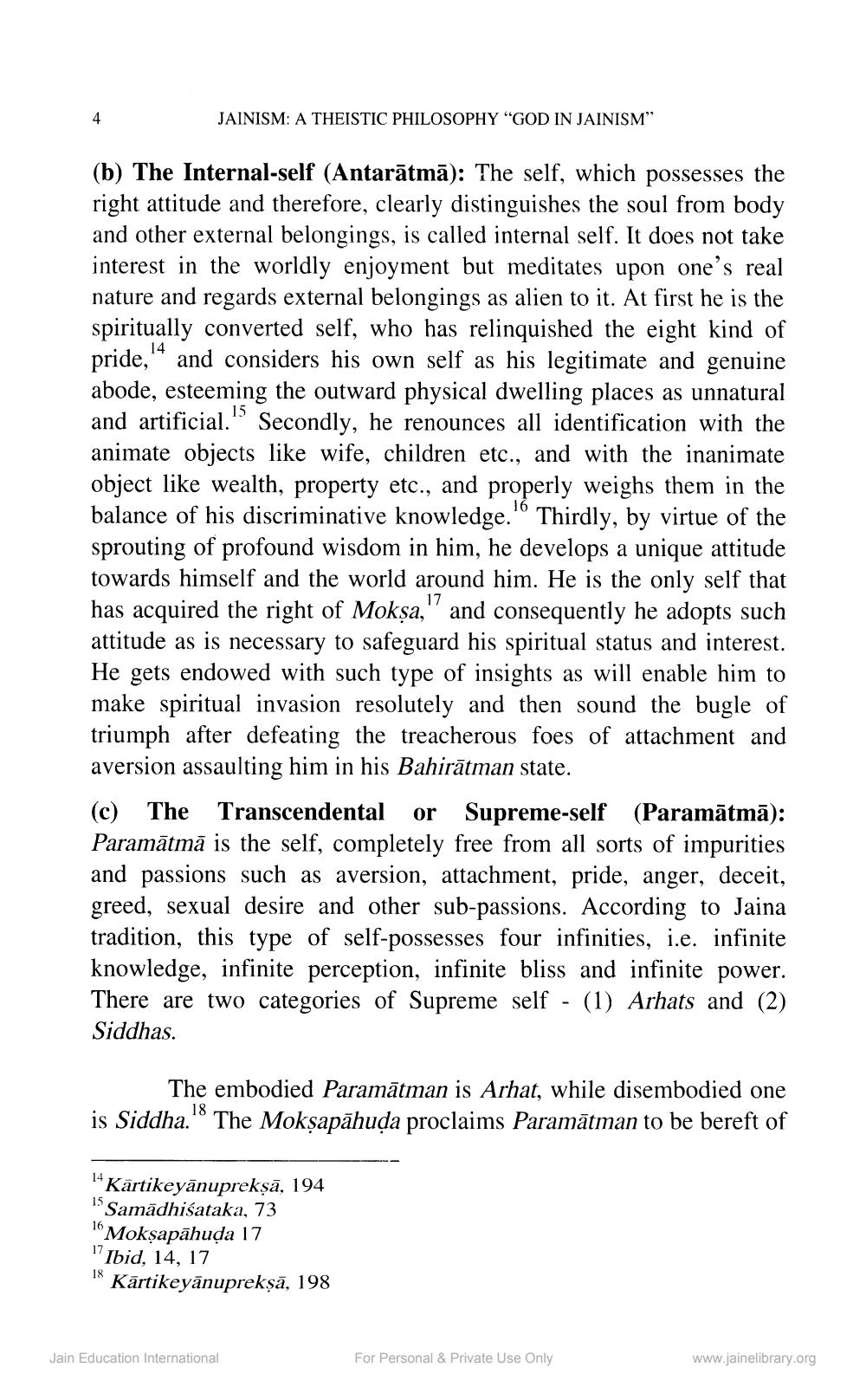________________
JAINISM: A THEISTIC PHILOSOPHY “GOD IN JAINISM"
(b) The Internal-self (Antarātmā): The self, which possesses the right attitude and therefore, clearly distinguishes the soul from body and other external belongings, is called internal self. It does not take interest in the worldly enjoyment but meditates upon one's real nature and regards external belongings as alien to it. At first he is the spiritually converted self, who has relinquished the eight kind of pride, and considers his own self as his legitimate and genuine abode, esteeming the outward physical dwelling places as unnatural and artificial." Secondly, he renounces all identification with the animate objects like wife, children etc., and with the inanimate object like wealth, property etc., and properly weighs them in the balance of his discriminative knowledge.'' Thirdly, by virtue of the sprouting of profound wisdom in him, he develops a unique attitude towards himself and the world around him. He is the only self that has acquired the right of Moksa," and consequently he adopts such attitude as is necessary to safeguard his spiritual status and interest. He gets endowed with such type of insights as will enable him to make spiritual invasion resolutely and then sound the bugle of triumph after defeating the treacherous foes of attachment and aversion assaulting him in his Bahirātman state
(c) The Transcendental or Supreme-self (Paramātmā): Paramātmā is the self, completely free from all sorts of impurities and passions such as aversion, attachment, pride, anger, deceit, greed, sexual desire and other sub-passions. According to Jaina tradition, this type of self-possesses four infinities, i.e. infinite knowledge, infinite perception, infinite bliss and infinite power. There are two categories of Supreme self - (1) Arhats and (2) Siddhas.
The embodied Paramātman is Arhat, while disembodied one is Siddha." The Mokşapāhuda proclaims Paramātman to be bereft of
14 Kārtikeyānuprekṣā, 194 15 Samadhisataka, 73
Mokşapāhuda 17 "Ibid, 14, 17 18 Kārtikeyānupreksā, 198
Jain Education International
For Personal & Private Use Only
www.jainelibrary.org




